Desbloqueando el futuro del bienestar
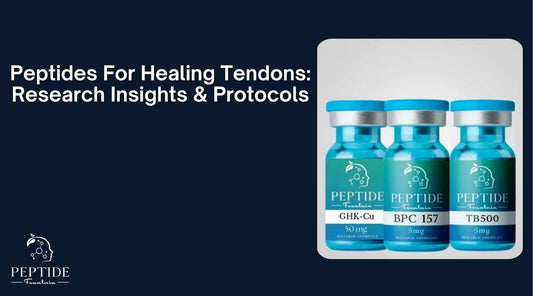
Peptides For Healing Tendons: Research Insights...
Peptides like BPC-157 and TB-500 are studied for their ability to support tendon healing by promoting collagen synthesis, reducing inflammation, and enhancing tissue regeneration in research models. Tendon damage is...
Peptides For Healing Tendons: Research Insights...
Peptides like BPC-157 and TB-500 are studied for their ability to support tendon healing by promoting collagen synthesis, reducing inflammation, and enhancing tissue regeneration in research models. Tendon damage is...
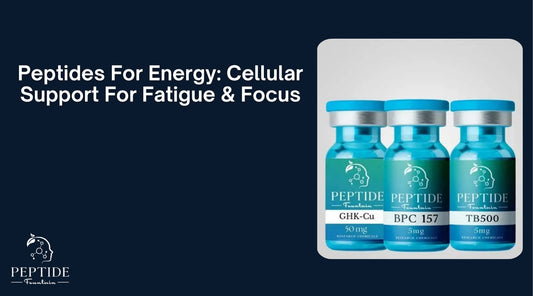
Peptides For Energy: Cellular Support For Fatig...
Peptides like MOTS-c, NAD+, and CJC-1295 may support cellular energy by enhancing mitochondrial function, boosting ATP production, and improving recovery without the crash of stimulants, making them a focus in...
Peptides For Energy: Cellular Support For Fatig...
Peptides like MOTS-c, NAD+, and CJC-1295 may support cellular energy by enhancing mitochondrial function, boosting ATP production, and improving recovery without the crash of stimulants, making them a focus in...

Best Peptides For Weight Loss: Top Research Com...
Semaglutide, Tirzepatide, Tesamorelin, and MOTS-c are the most studied peptides for fat loss models, showing promising effects on appetite suppression, metabolic flexibility, and hormone regulation. Among them, GLP-1 analogs, particularly...
Best Peptides For Weight Loss: Top Research Com...
Semaglutide, Tirzepatide, Tesamorelin, and MOTS-c are the most studied peptides for fat loss models, showing promising effects on appetite suppression, metabolic flexibility, and hormone regulation. Among them, GLP-1 analogs, particularly...
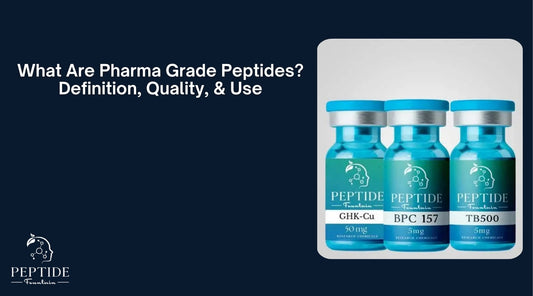
What Are Pharma Grade Peptides? Definition, Qua...
Pharma grade peptides are highly purified compounds produced in GMP-certified facilities, meeting strict quality, sterility, and documentation standards. They're intended for clinical or research use, offering consistency, verified sourcing, and...
What Are Pharma Grade Peptides? Definition, Qua...
Pharma grade peptides are highly purified compounds produced in GMP-certified facilities, meeting strict quality, sterility, and documentation standards. They're intended for clinical or research use, offering consistency, verified sourcing, and...
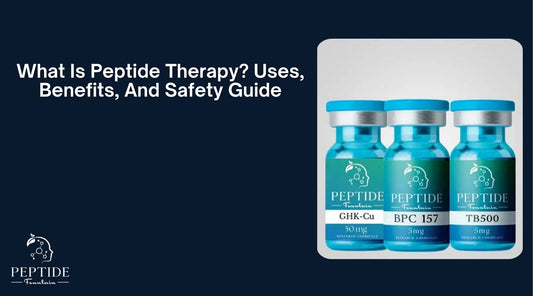
What Is Peptide Therapy? Uses, Benefits, And Sa...
Peptide therapy uses lab-engineered amino acid chains to signal natural healing, hormone release, fat metabolism, or cellular repair. It’s studied for muscle recovery, anti-aging, weight loss, and cognitive support, but...
What Is Peptide Therapy? Uses, Benefits, And Sa...
Peptide therapy uses lab-engineered amino acid chains to signal natural healing, hormone release, fat metabolism, or cellular repair. It’s studied for muscle recovery, anti-aging, weight loss, and cognitive support, but...
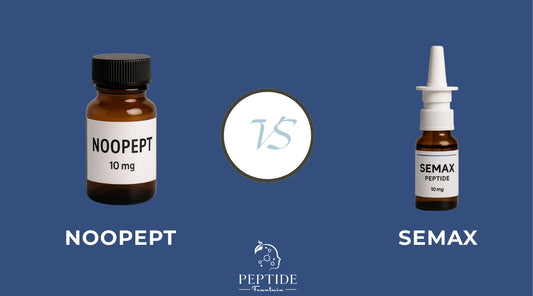
Noopept Vs Semax: Cognitive Effects, Mechanisms...
Noopept provides fast, short-term cognitive enhancement through cholinergic and glutamate pathways, while Semax offers longer-lasting neuroprotection by boosting BDNF and regulating stress. Their effects, mechanisms, and research uses differ significantly....
Noopept Vs Semax: Cognitive Effects, Mechanisms...
Noopept provides fast, short-term cognitive enhancement through cholinergic and glutamate pathways, while Semax offers longer-lasting neuroprotection by boosting BDNF and regulating stress. Their effects, mechanisms, and research uses differ significantly....


